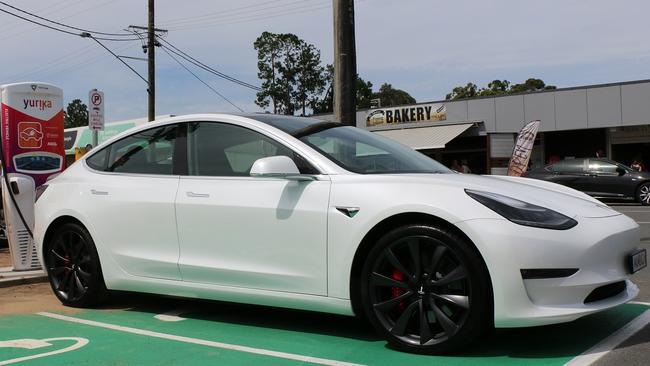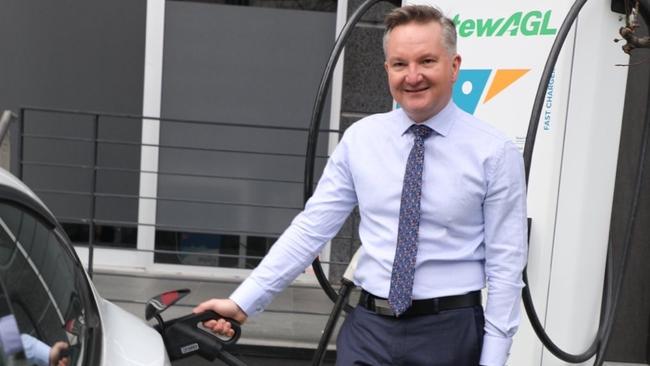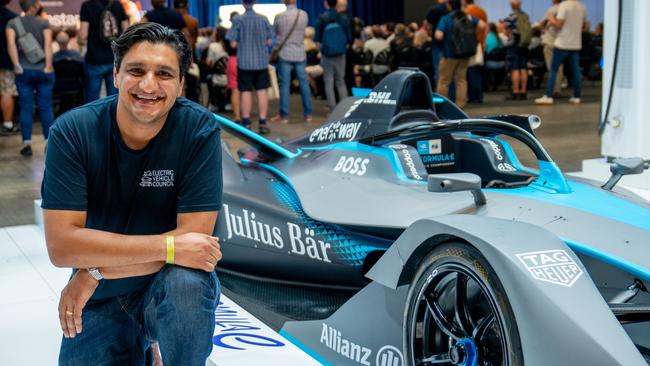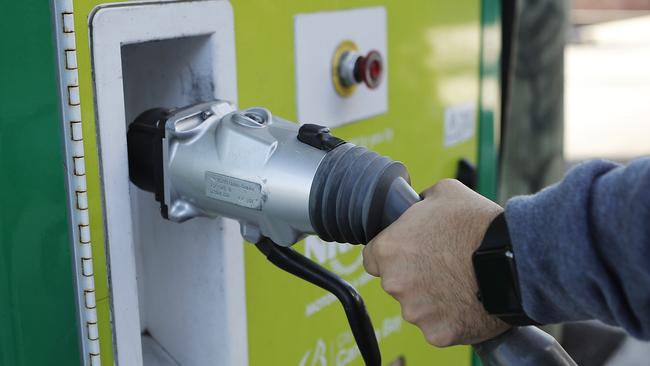Holiday traffic to put pressure on EV charging infrastructure
Last Christmas holidays tested the patience of EV drivers, who were forced to queue to charge. This year there are another 80,000 EVs on the road.
Motoring News
Don't miss out on the headlines from Motoring News. Followed categories will be added to My News.
Australia’s fledgling EV charging network faces a stern test this weekend as the nation takes to the road for the summer holidays.
EV sales have almost tripled this year to 80,000 and that will put added pressure on a network that has buckled under the strain of school holiday traffic during the year.
Last summer, frustrated drivers reported waiting up to 90 minutes to charge their vehicles.
It’s a similar story overseas, where charging networks have been unable to cope with the widespread adoption of EVs, leading to long queues and even road rage during holiday periods.

The Federal Government said there had been a 70 per cent increase in public EV charging locations since Christmas last year, with about 800 fast and ultra-fast charging locations now operating nationwide – up from 464 this time last year.
Those stations have about 2000 fast and ultra-fast charging plugs.
Minister for Climate Change and Energy Chris Bowen said the expansion was “helping address the needs of Aussie drivers in regional and suburban communities and reducing wait times for tens of thousands of new EV drivers”.
He said the Fringe Benefits Tax exemption for electric vehicles leased through work had been a key driver of the spectacular growth in EV sales this year, saving some people up to $11,000 a year in lease costs on a $50,000 vehicle.

“More and more households and businesses are saving thousands of dollars on the upfront and running costs of their vehicles – with our EV discount making leasing EVs and plug-in hybrids cheaper than leasing petrol vehicles in many circumstances.”
But the rapid growth has potential downsides.
There are now an estimated 173,000 EVs on our roads, which means there are roughly 86 EVs for every charger.
Electric Vehicle Council chief executive Behyad Jafari said the industry had learned lessons from last Christmas.
“The good thing is there are all these companies that learn from that. So it’s not a problem that we just keep repeating,” he said.

Initially a lot of charging stations had a single charger, which meant long delays, he said.
“If there was an issue with that one charger, you were stuck. What we’ve seen is that new sites being built generally have four, six or eight chargers per site.
“Now it’s much like a petrol station. If one bowser is out, that’s okay because there’s a lot more bowsers that you can use.”
New players were also entering the market, from “traditional petrol companies to new Australian start-ups to large energy companies”.

“They are all spending their money building up more charging stations because they can see that the market is moving and there are more electric vehicle drivers,” he said.
It was important that new EV drivers had a positive experience.
“For quite a lot of people this will be their first holidays and making sure that they get to go out, have a good trip, have a good experience with those electric vehicles means they come back from the holidays and tell all their friends they should buy them as well. And that’s exactly what we want.”
Federal and State governments plan to add another 1000 fast charging locations online in the next 12 to 36 months.
The federal government also has a partnership with the NRMA to install fast chargers every 150km on the national highway network.



